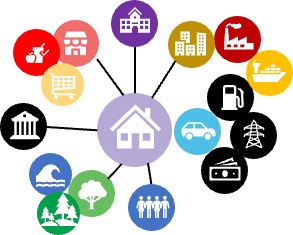Exploring Personal Transport Transition to net zero using game-style techno-economic modelling interfaces
REF: EGIS2023-SPK4
This PhD is focused on designing, developing and demonstrating a audit/game/virtual reality software tool. The tool will generate and curate data from a household transport audit. The data will then be used in a sim game exploration of adaptive capacity and demand response in travel behaviour, choice of vehicle, and alternatives for housing. The system will be designed to monitor adaptive capacity and latent demand by using game-like exploration of personally generated reality. “Play” is a way people view and understand the world. Most people do not have personal control over the fuel supply, vehicle manufacture, transport infrastructure or public transport systems that provide for their access to essential transport activities. Very few people understand how transition of energy systems to low carbon will affect their lives and how they will adapt. This state of prescient risks can increase fear of the unknown, which can manifest suboptimal expectations and therefore inefficient decisions in households, companies and councils. The next steps of the energy transition in transport are not known to households or councils. The personal transport activity adaptive capacity survey and transition simulation game (TACA Sim) were conceived in a previous research project [1,2]. The PhD research will design a realistic game to explore adaptation, sensemaking and pathfinding in energy transition for households and communities and how personal demand participation integrates with other systems like energy supply, transport, land use and property development. The project will provide data to the Islands Centre for Net Zero action research programme in cooperation with the Orkney Island Council and HITrans.
The objective of the PhD is to develop, test and prepare for commercialisation a energy transition tool. You will need to communicate with a range of stakeholders and to process and analyse the results across different sectors, including personal transport, land use, property re-development, and energy supply. The challenge is to use gamification to create an alternative, but understandable and explorable, reality, and to generate real problem solving and adaptive responses from participants that can in-turn inform demand response, policy and property investment.
The supervisory team brings the following skill sets to the project:
Susan Krumdieck: Energy Transition
Funding
The project is funded for 3 years and covers the PhD fees and stipend (currently £15 285 per annum). The project will be carried out as part of the Islands Centre for Net Zero Transition Lab activities based in the Scottish Islands, and located at the HWU Orkney ICIT campus. The project will be part of the Entrepreneurial effort of the ICNZ and will be aimed at commercialisation of the developed audit/sim game.
Eligibility
This project is available to UK and International students. The successful candidate will have a B.Sc. (2:1 or higher) and M.Sc. (distinction) or equivalent, and ideally additional experience in computer science, modelling, image analysis or engineering, ideally with some experience of applying these skills to other disciplines (e.g. in the life sciences, social sciences, transport, urban form, buildings and built environment, community activities). You will have good programming skills, preferably in Python, ArcGIS, game development or other advanced programming languages. Knowledge of transportation engineering, building energy science, or freight supply chain would be beneficial. You will be highly self-motivated and confident enough to seek out solutions beyond the current team if required. You must be able to describe complex issues in a means that is accessible to the range of stakeholders with whom you will work.
How to apply
To apply you must complete our online application form. Please select PhD programme Energy Transition and include the full project title, reference number and supervisor (Prof SP Krumdieck) on your application form. Ensure that all fields marked as ‘required’ are complete.
You must complete the section marked project proposal; upload a supporting statement documenting your reasons for applying to this particular PhD project, and why you are an ideal candidate for the position. You will also need to provide a CV, a copy of your degree certificate/s and relevant transcripts. You will be asked to enter details of an academic referee who will be able to provide a technical reference. Until your nominated referee has uploaded their statement, your application will not be marked as complete and will not be considered by the review panel. You must also provide proof of your ability in the English language (if English is not your mother tongue or if you have not already studied for a degree that was taught in English within the last 2 years). We require an IELTS certificate showing an overall score of at least 6.5 with no component scoring less than 6.0 or a TOEFL certificate with a minimum score of 90 points.
Please contact Prof Susan Krumdieck (S.Krumdieck@hw.ac.uk) for further information or an informal discussion.
Time-lines
The ICNZ is anticipating advertising of the scholarship in November. Applicants must be available to start the PhD in 2023.
Submit to: Susan Smith
- Watcharasukarn, M., Krumdieck, S., Green, R. and Dantas, A., Researching Travel Behavior and Adaptability: Using a Virtual Reality Role-Playing Game. Simulation & Gaming, Vol. 42, No. 1 (2011) 100-117.
- Watcharasukarn, M., S. Krumdieck, S. Page, Virtual reality simulation game approach to investigate transport adaptive capacity for peak oil planning, Transportation Research Part A, Vol. 46 (2012) 348 – 367.
